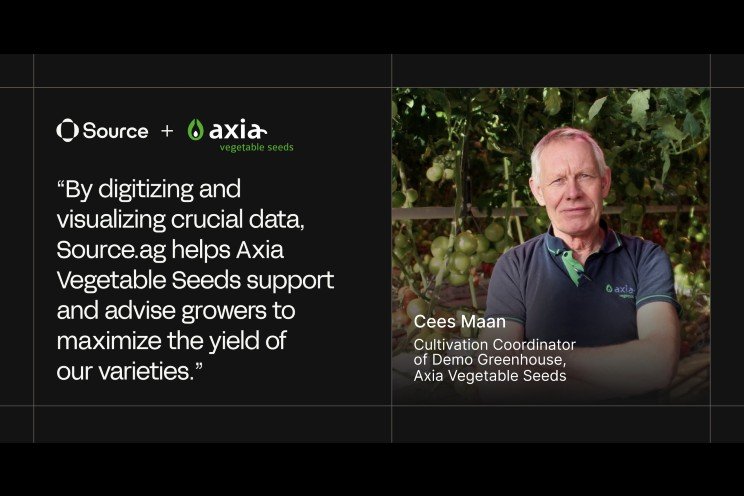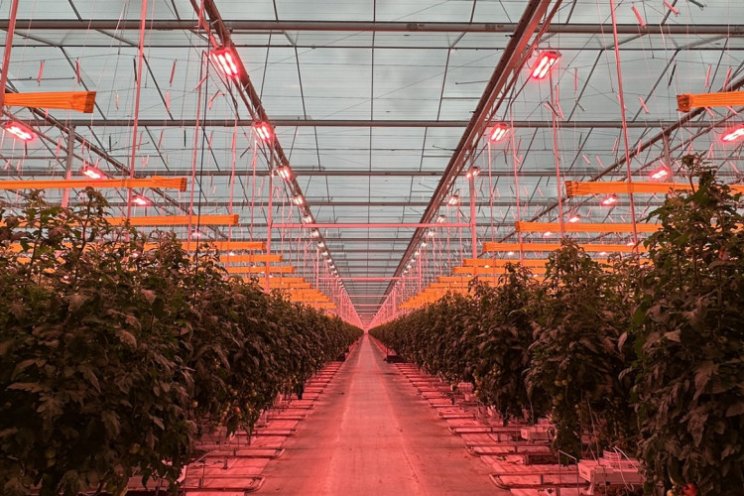The benefits of using grasshoppers for animal nutrition
Added on 10 April 2021

As the animal feed industry explores new protein sources to preserve the sector's sustainability, insect feed grows in popularity. Current research demonstrates the benefits of using insects for animal nutrition, and after the black soldier fly and housefly larvae, a new player is entering the field: the grasshopper. Dror Tamir, co-founder and CEO of Hargol, the world's first commercial grasshopper farm, tells us more.
"Hargol was founded in 2016 with a vision to deliver a healthier protein," says Tamir. "It is healthier for humans, healthier for the environment, it is safer, and it is more efficient. Grasshoppers are nature's most efficient protein source and have a long tradition across the globe as the world's most widely-eaten insect."
Grasshoppers: From pest to feed protein
"As a young boy in Israel, I heard stories from my grandparents about the locust swarms [a grasshopper subspecies] Israel suffered from in the 1950s. They would run into the fields to scare the grasshoppers away, at the same time they saw other Jews coming into the fields and eating the grasshoppers - this is where I learned that grasshoppers are both a food for many and are also kosher!" Tamir explains. A more recent swarm prompted scientists in Pakistan to come up with a way to turn the critters into chicken feed. Tamir's company may just be onto something big. Whereas the company has thus far focused mainly on farming grasshoppers for human consumption, they are now turning their attention to animal feed, starting with pet food.

"Grasshoppers are a sustainable protein source, reducing greenhouse gas emissions by 99%, water consumption 1,000-fold, and arable land usage 1,500-fold, all while providing an ingredient with over 70% whole protein," Dror Tamir tells All About Feed. Photo: Dror Tamir, Hargol FoodTech
Sustainable option for pet food
"Today, pets and the pet food industry suffer from 2 major problems: it is a polluting industry which uses unsustainable animal-based protein sources, and obesity and diabetes have become an epidemic," Tamir continues. "Grasshoppers are a sustainable protein source, reducing greenhouse gas emissions by 99%, water consumption 1,000-fold, and arable land usage 1,500-fold, all while providing an ingredient with over 70% whole protein." Furthermore, Tamir adds that grasshoppers are a healthy option as well, reducing body fat and improving the metabolism by reducing sugar- and cholesterol levels faster. "You have to remember that grasshoppers are the natural food of most pets!"
Commercial production of grasshoppers
"Because no one was able to intensively farm grasshoppers on a commercial scale, we had to develop everything from scratch: breeding, feeding, fattening, and harvesting," Tamir continues. "We are producing the final product through joint ventures with food producers across the globe."
"Now, as we are scaling up, we are looking for partners to handle the feed production and fattening as we replicate the infrastructure of the poultry industry, with a special focus on the development of new breeds, and breeding."
On a similar note, Hargol is looking into the opportunity of producing grasshoppers for livestock feed: "We are seeking a strategic partner from this industry to collaborate on developing a high-quality, grasshopper-based feed, to not just deliver the nutrients to the animals, but to also provide them with a wide range of health benefits."
Currently, the company is working on expanding its production capacity, and plans to establish grasshopper farms globally. Tamir: "We have already reached our proof of concept: we can reach a cost level that makes grasshopper protein the most efficient animal-based protein out there," he says. Tamir concludes by mentioning the investments the company has made into researching the health benefits of grasshoppers. "The more we learn about them, the more excited we become. Grasshoppers truly are a superior protein source in every way."
| FOOD FOR THOUGHT In addition to being kosher, grasshoppers - and the locust subspecies in particular - are halal, and the use of grasshoppers in animal feed does not pose any challenges to either kosher or halal food production. Rabbi Eliezer Zalmanov explains: "The general rule is that only humans are obligated to keep kosher, not animals. There is no prohibition against feeding animals non-kosher insects, even if the animal itself will be eaten by a kosher-observing Jew. The only concern would be, once the kosher animal is slaughtered, if a fully-formed insect or worm is found in its intestines, then it must first be removed." |
Header Photo: Hargol, the world's first commercial grasshopper farm, already farms grasshoppers for human consumption. Now, they are turning their attention to animal feed, starting with petfood. Credit: Dror Tamir, Hargol FoodTech
Source: All about Feed
Source: All About Feed
More news















